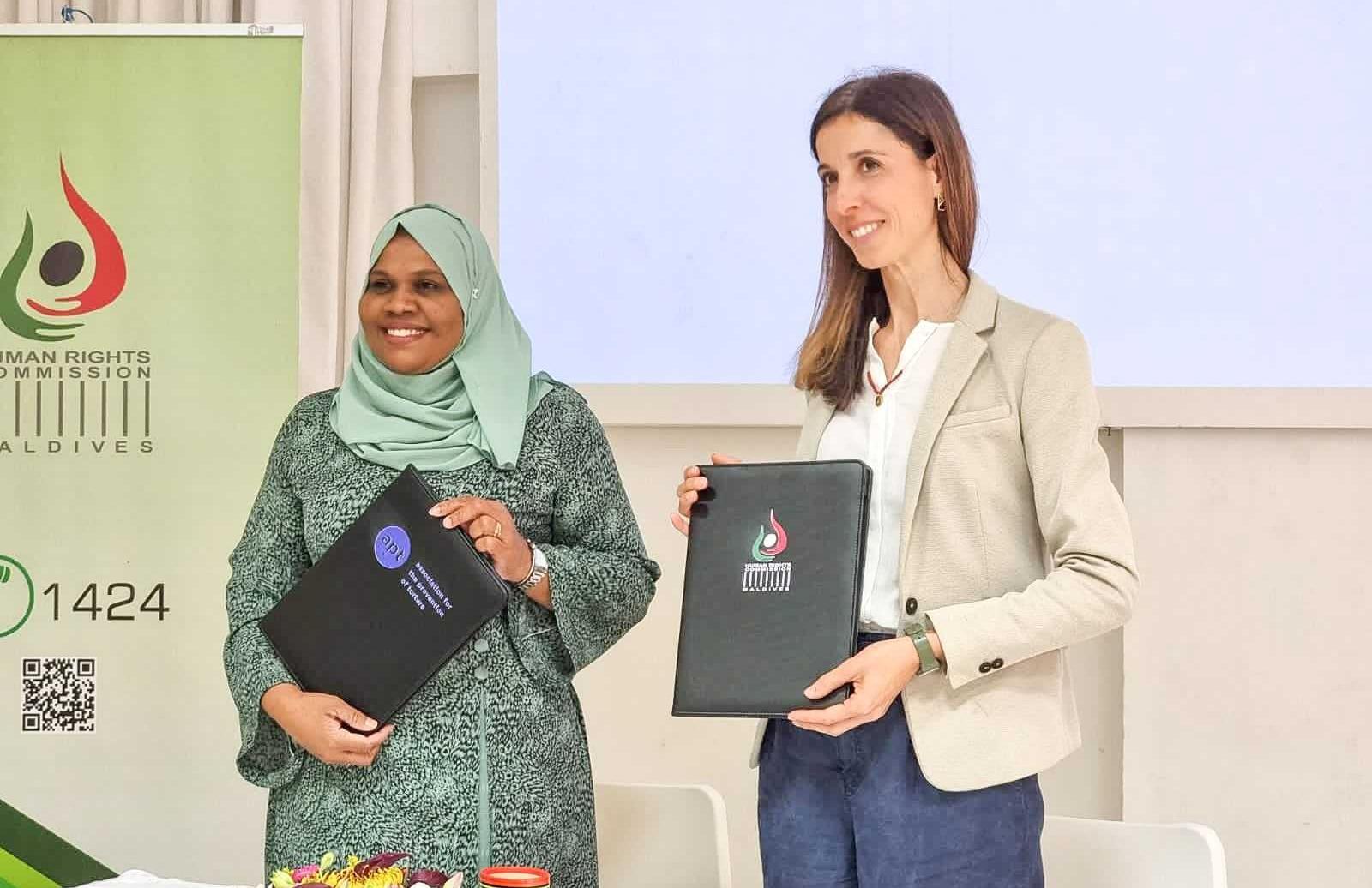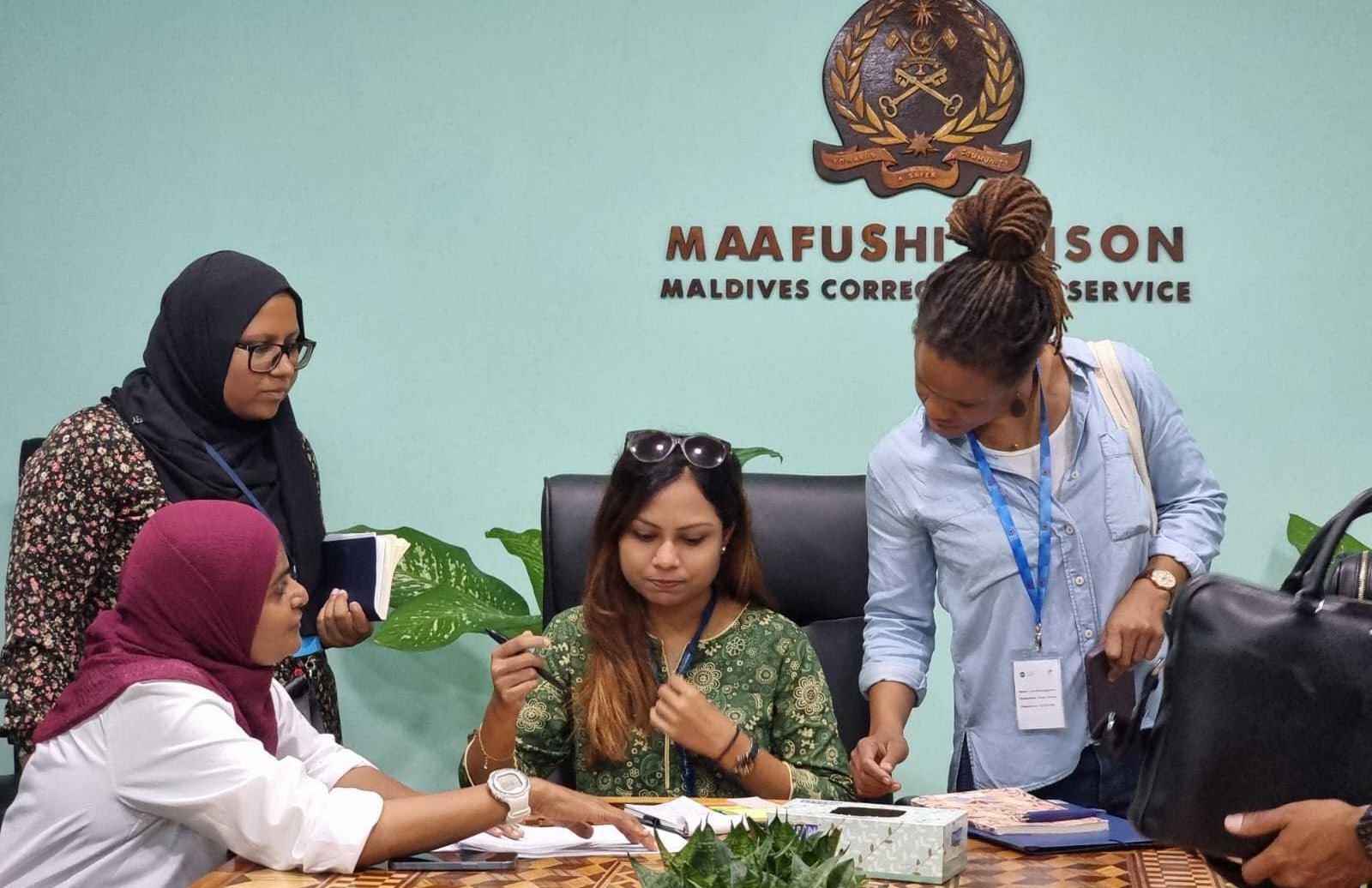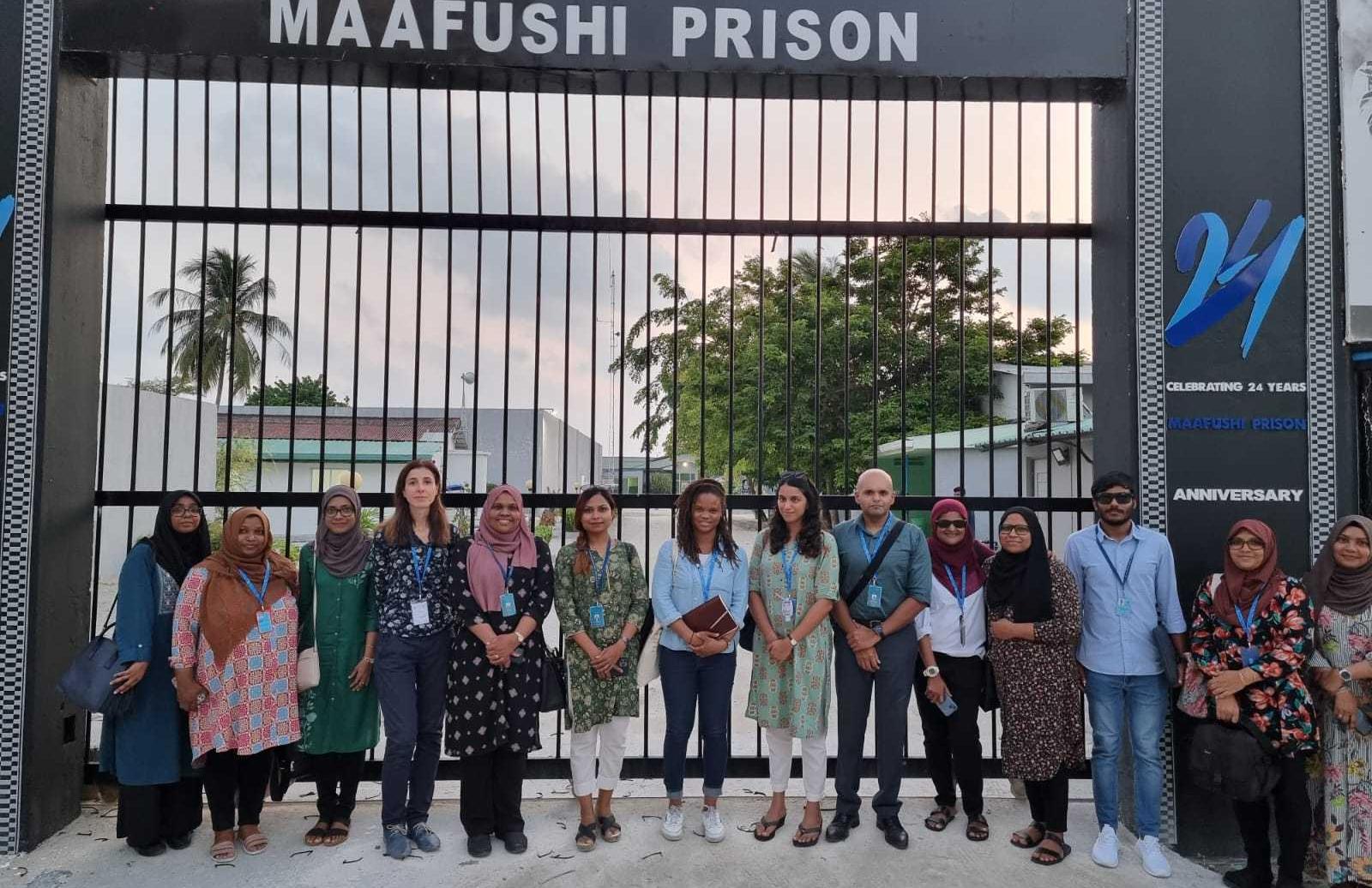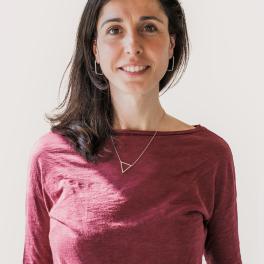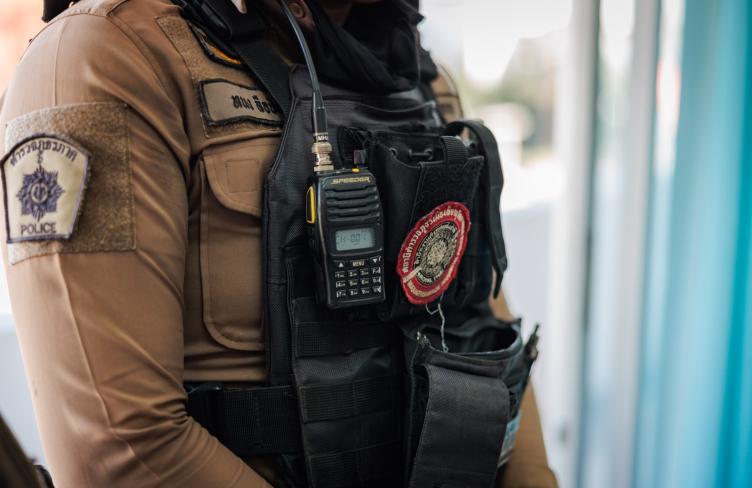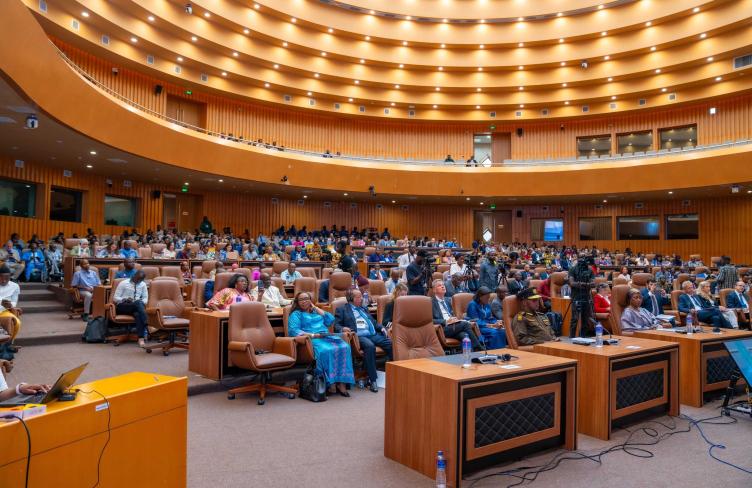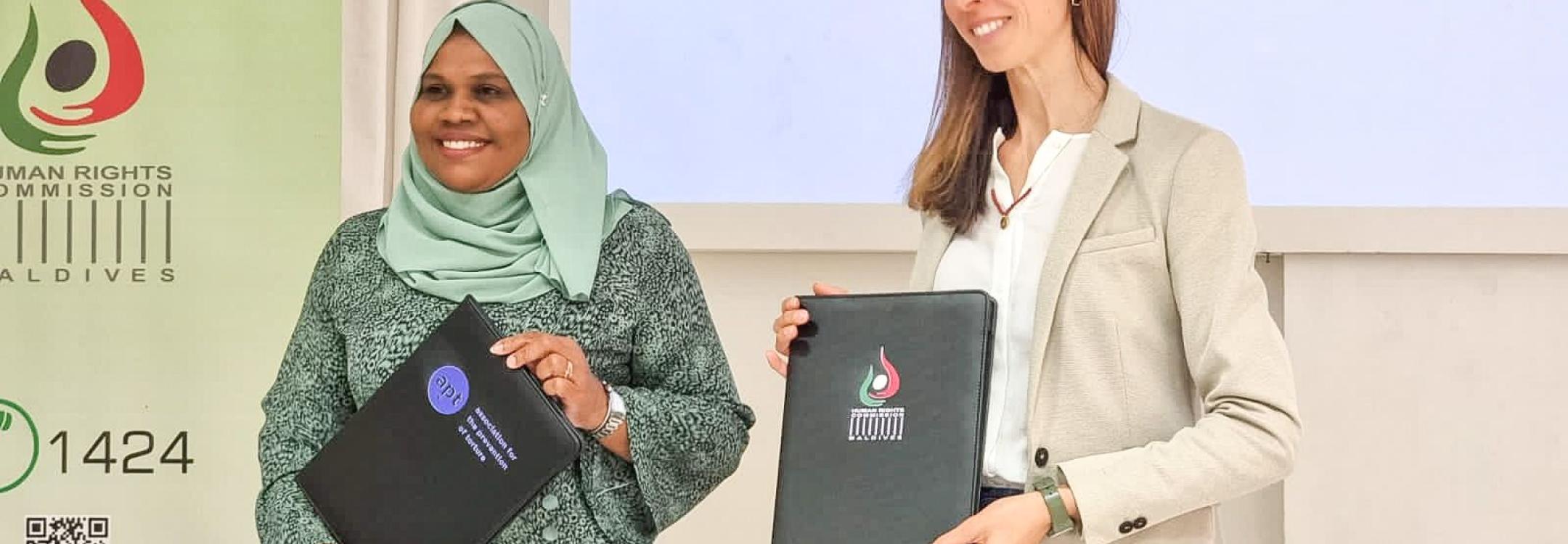
Twelve years after the first national dialogue on torture prevention in the Maldives, representatives from national authorities and the Human Rights Commission came together to discuss approaches to advance torture prevention efforts in the country.
The high-level dialogue, held in Malé on 24 November 2022, was convened jointly by the Human Rights Commission of the Maldives (HRCM) and the APT. It brought together high-level representatives from the government, the parliament and the judiciary, including the Minister of Home Affairs, the State Minister of Gender, the Commissioner of Prisons, the Chairperson of the Parliament Committee on Human Rights and Gender, and representatives from the President’s Office, Ministry of Defense, Police Service, National Drug Agency, Attorney General’s Office, Prosecutor General’s Office, Ministry of Health and Ministry of Foreign Affairs, among others. Representatives from the UN Subcommittee on Prevention of Torture and the High Commission of Canada to Sri Lanka and Maldives also joined the event online.
Participants reflected on the progress made in relation to the treatment and conditions of persons deprived of liberty, and on the challenges ahead. They agreed on the need to further address the root causes of torture and ill-treatment, especially for persons in situations of heightened vulnerability, through legislative and policy reforms, including through alternative measures to detention and deinstitutionalisation, awareness-raising on the risks of torture and ill-treatment, and effective implementation of the legal and policy frameworks.
The need for further coordination among government agencies, judicial actors, Parliament and the Human Rights Commission was also highlighted. In this regard, concrete plans were shared to ensure the effective functioning of the National OPCAT Committee, including through developing the Committee’s operating procedures. Participants also stressed the importance of ensuring civil society participation in the Committee.
I hope the National OPCAT Committee will provide an institutionalised platform mandated by law for all OPCAT actors to work together on root causes and cross-cutting issues, eventually leading to a holistic approach to torture prevention.
The National OPCAT Committee, led by the Ministry of Home Affairs, was established following the first national dialogue on torture prevention in 2011, with the aim of bringing together all torture prevention actors in the country. Although the Committee has been functioning for several years, its work has been discontinuous and participants agreed on the need to strengthen it.
“We cannot underestimate how important the process of continuous dialogue is. It is also very important that NPMs are granted unfettered access to all places of deprivation of liberty, all persons therein and all documentation, without any delay”, said Jakub Czepek, SPT member and focal point for the Maldives.
During the event, the Human Rights Commission of the Maldives and the APT signed a Memorandum of Understanding to renew their cooperation to strengthen the institutional capacity of the Commission in preventing torture and ill-treatment, in particular with regards to women deprived of liberty.
The APT has been supporting torture prevention efforts in the Maldives since 2006. We are very keen to continue working in the country and revive our long-standing partnership with the Human Rights Commission and the NPM through awareness-raising, technical assistance, dialogue and capacity strengthening, in particular to prevent discrimination and ill-treatment against women deprived of liberty.
Veronica Filippeschi, APT Senior Adviser on Vulnerabilities and Policy
The national dialogue also provided the APT with the opportunity to present the Méndez Principles on Effective Interviewing to national authorities, as a new approach to replace coercive interrogations with rapport-based interviewing and human rights safeguards.
“Indeed, it gives me a great sense of satisfaction that the Human Rights Commission of the Maldives is ready to engage to the fullest in seeking the expertise and assistance from the APT which will in turn have an incredible impact on the prevention work done by the Commission”, said Mariyam Muna, President of the Human Rights Commission of the Maldives at the opening of the high-level dialogue.
The national dialgue was the culmination of a series of activities held by the APT to support and strengthen the work of the Human Rights Commission of the Maldives in its role as the National Preventive Mechanism, in particular with regards to monitoring the treatment and conditions of women deprived of liberty.
Prior to APT’s mission, HRCM Commissioners and staff from Malé and the Southern Regional Office completed an online course on gender-sensitive detention monitoring, which examined the specific risks and protection needs of women deprived of liberty, as well as the specific methodological skills to monitor their situation.
While in the Maldives, from 20 to 24 November 2022, the APT delegation conducted a face-to-face workshop on gender-sensitive detention monitoring with HRCM Commissioners and NPM staff. The workshop included a two-day visit to Maafushi prison to monitor the situation of women deprived of liberty.
These activities are part of a broader APT project, supported by the Government of Canada, to improve the treatment of women deprived of liberty within the criminal justice system and to promote the use of gender-responsive alternative measures to detention for women. The project is being implemented in eight priority countries, including the Maldives, across different regions.
